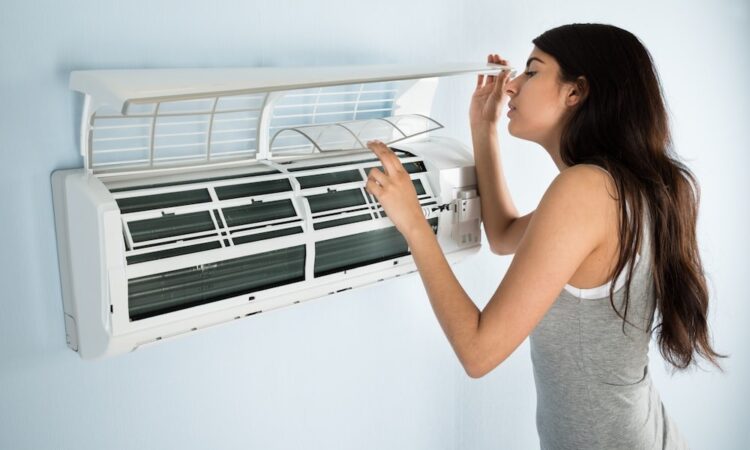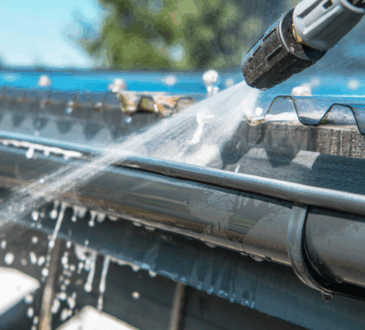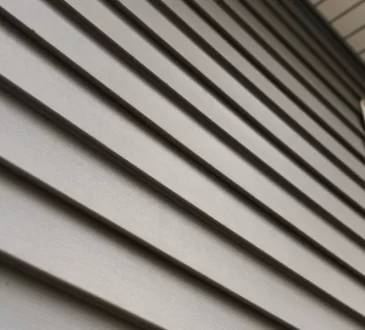
Lack of Cooling
If you’ve noticed that your air conditioner isn’t cooling your space as effectively as it should, there are a few potential causes to consider. One common issue is a dirty air filter. When the filter becomes clogged with dirt and debris, it restricts airflow and reduces the cooling capacity of your AC unit. To troubleshoot this problem, simply clean or replace the air filter.
Another possible cause of a lack of cooling is a refrigerant leak. Refrigerant is responsible for absorbing heat from the air and cooling it down. If there is a leak in the refrigerant lines, your AC unit won’t be able to properly cool the air. In this case, it’s best to contact a professional HVAC technician to repair the leak and recharge the refrigerant.
Additionally, make sure that the condenser unit, outdoor fan, and condenser coils are clean and free from any debris. Any obstruction to the condenser can hinder the heat transfer process and result in inadequate cooling.
Warm Air Coming from the AC
If warm air is coming from your air conditioner instead of cool air, there are a few possible reasons for this issue. First, check the thermostat settings to ensure it is set to the desired temperature and cooling mode. If the settings are correct, the next step is to check the outdoor unit. Make sure it is running and that the fan is operational. If the fan is not running, there may be a problem with the motor or wiring, and you should contact a professional technician to inspect and repair it.
Another common cause of warm air is a malfunctioning compressor. The compressor is responsible for compressing the refrigerant and transferring heat out of your home. If it is not functioning properly, it can’t cool the air effectively. Again, it’s best to have a professional technician diagnose and repair this issue.
Frequent Cycling
If your AC unit is turning on and off frequently, known as “short cycling,” it can be a sign of a few different problems. One common cause is an oversized air conditioner. If the unit is too large for the space it is cooling, it will cool the air too quickly and then shut off. This can be solved by having a professional HVAC technician assess and potentially replace the unit with one that is properly sized.
Another possible cause of frequent cycling is a faulty thermostat. If the thermostat is not calibrated correctly or is located in an area affected by heat sources, it may not accurately sense the temperature and cause the AC to cycle on and off too frequently. Consider adjusting the thermostat settings or relocating it to a cooler area of the home.
Lastly, check for any blockages in the airflow, such as a clogged air filter or obstructed vents. Poor airflow can cause the AC unit to work harder, leading to frequent cycling. Clean or replace the air filter and make sure there are no obstructions in the vents.
Frozen Evaporator Coil
If you notice ice or frost forming on your air conditioner’s evaporator coil, it could indicate a problem. This issue is often caused by insufficient airflow or a low refrigerant charge.
To troubleshoot insufficient airflow, check and clean the air filter. A dirty filter can restrict air movement and lead to the coil freezing. Additionally, ensure that the supply vents and return grilles are not blocked or obstructed.
If the airflow is not the issue, low refrigerant levels may be to blame. A refrigerant leak can cause a decrease in pressure, leading to a frozen coil. Contact a professional technician to identify and repair any leaks, as well as recharge the refrigerant to the correct levels.
Unusual Noises
If your air conditioner is making strange or loud noises, it is often a sign of an underlying problem. Common noises include grinding, squealing, rattling, and banging.
Grinding or squealing noises may indicate a problem with the AC’s motor or fan. It could be a worn-out belt, bearing, or motor. It’s advisable to shut off the unit and contact an HVAC technician to inspect and repair any issues with the motor or fan.
Rattling or banging noises can be caused by loose components or debris inside the unit. Check for any loose screws or bolts and tighten them if necessary. If the noise persists, it’s best to have a professional technician inspect the unit to identify and fix the problem.
Water Leaks
If you notice water leaking from your air conditioner, it is important to address the issue promptly to prevent further damage. Water leaks can be caused by a few different factors.
One common cause is a clogged condensate drain line. Over time, the drain line can become blocked by dirt, algae, or debris, causing water to back up and overflow. To troubleshoot this issue, locate the condensate drain line and clear any obstructions. You can use a wet/dry vacuum or a pipe cleaner to remove the blockage. Regular maintenance, such as flushing the drain line with a mixture of bleach and water, can also help prevent clogs.
Another possible cause of water leaks is a damaged or clogged condensate pan. The pan collects water that drips from the evaporator coil. If the pan is cracked or the drain hole is blocked, water can leak out. Inspect the condensate pan for any signs of damage and replace it if necessary. Clean the pan regularly to prevent any build-up.
If you have addressed these issues and are still experiencing water leaks, it is best to contact a professional technician to diagnose and repair the problem.
Faulty Thermostat
A faulty thermostat can cause various problems with your air conditioner, including erratic temperature control, failure to turn on or off, or incorrect readings. To troubleshoot a faulty thermostat, start by checking the batteries. If the thermostat is battery-operated, replace the batteries and see if that resolves the issue.
Next, check for any loose or corroded wiring connections between the thermostat and the AC unit. If you notice any loose wires or corrosion, tighten or clean the connections. If the issue persists, it’s best to consult a professional HVAC technician to inspect and potentially replace the thermostat.
Dirty Air Filters
Dirty air filters can cause a range of problems in your air conditioning system. A clogged filter restricts airflow, making your AC unit work harder and less efficiently. This can result in reduced cooling capacity, increased energy consumption, and potential damage to the system.
To troubleshoot dirty air filters, locate the air filter in your AC unit and check its condition. If it is dirty or clogged with debris, clean or replace it. It’s recommended to clean or replace the air filter regularly, usually every one to three months, depending on the manufacturer’s guidelines and the level of air pollutants in your home.
Regularly cleaning or replacing the air filters not only improves the efficiency of your AC system but also helps maintain good indoor air quality.
Refrigerant Leaks
Refrigerant leaks can significantly impact the performance and efficiency of your air conditioner. If your AC unit is low on refrigerant, it won’t be able to effectively cool the air.
Signs of a refrigerant leak may include reduced cooling capacity, increased energy bills, ice formation on the evaporator coil, and hissing or bubbling sounds near the refrigerant lines. If you suspect a refrigerant leak, it’s crucial to contact a professional HVAC technician to diagnose and repair the issue.
The technician will identify the location of the leak, repair it, and recharge the refrigerant to the proper levels. It is important to note that handling refrigerant requires specialized knowledge and equipment, so it should only be done by trained professionals.
Electrical Issues
Electrical issues can cause a variety of problems with your air conditioner. Common electrical problems include blown fuses, tripped circuit breakers, faulty wiring, and malfunctioning capacitors.
If you experience a complete loss of power to your AC unit, check the circuit breaker panel and reset any tripped breakers. If the breaker continues to trip, it may indicate a more serious electrical issue and a professional technician should be consulted to inspect and repair the wiring.
Faulty capacitors can also cause electrical issues and disrupt the operation of your air conditioner. Capacitors store and release electrical energy to start the motors in your AC unit. If a capacitor fails, the motor may not start or run properly. It’s best to have a trained HVAC technician inspect the capacitors and replace them if necessary.
Condenser Unit Problems
The condenser unit is the outdoor component of your air conditioner that releases heat to the surrounding environment. Various issues can arise with the condenser unit.
One common problem is a dirty or blocked condenser coil. Over time, the coils can become covered in dirt, dust, and debris, impairing their ability to release heat. To troubleshoot this issue, turn off the power to the condenser unit, disconnect it from the power source, and clean the coils using a soft brush or a gentle stream of water. Be cautious not to damage the delicate fins on the coils.
Another potential issue with the condenser unit is a faulty fan motor. If the fan is not running or running at a slower speed, it can affect the heat dissipation process. Inspect the fan motor for any signs of damage or malfunction. If necessary, contact an HVAC technician to repair or replace the fan motor.
Additionally, ensure that the area around the condenser unit is clear of any obstructions. Trim back any vegetation or debris that may impede airflow to the unit.
Ductwork Issues
The ductwork in your home plays a crucial role in distributing cool air from your air conditioner. Any issues with the ductwork can affect the efficiency and performance of your AC system.
Common ductwork problems include leaks, poor insulation, and improper design or sizing. Leaky ducts can allow cool air to escape before it reaches the intended areas, leading to reduced cooling efficiency. Inspect the ductwork for any visible leaks or gaps, and seal them with duct tape or use mastic sealant for more significant leaks.
If the ductwork is poorly insulated or improperly sized, it can result in heat gain or loss, reducing the overall cooling effectiveness. Consider having a professional HVAC technician assess the ductwork and make any necessary repairs or improvements.
Condensate Drainage Problems
The condensate drain is responsible for collecting and removing the excess moisture produced by your air conditioner. If there are issues with the condensate drainage system, it can lead to water leaks or even damage to your AC unit.
If you notice water pooling around your indoor unit or dripping from it, it may indicate a problem with the condensate drain. Check the condensate drain line for any clogs or obstructions and clear them if necessary. You can use a wet/dry vacuum or a pipe cleaner to remove any blockages.
To prevent future drainage problems, regular maintenance is essential. Flush the condensate drain line with a mixture of bleach and water to prevent the growth of algae and bacteria.
Malfunctioning Fans
The fans in your air conditioner help to circulate cool air throughout your home. If the fans are not functioning properly, it can affect the overall cooling performance.
If you notice that the indoor or outdoor fans are not running or running at a slower speed, it may be due to a faulty motor, worn-out belts, or loose wiring connections. Inspect the fans for any visible signs of damage or malfunction and address the issue accordingly. If needed, contact an HVAC technician to repair or replace the fans.
Clogged Condenser Coils
Condenser coils in the outdoor unit of your air conditioner can become clogged with dirt, debris, and vegetation over time. This can impair the heat transfer process and reduce the efficiency of your AC system.
To troubleshoot this issue, turn off the power to the condenser unit, disconnect it from the power source, and gently clean the coils using a soft brush or a gentle stream of water. Avoid using excessive force or high-pressure water, as this can damage the coils. Regularly cleaning the condenser coils as part of your maintenance routine will help prevent clogs and maintain the efficiency of your AC system.
Inadequate Maintenance
Inadequate maintenance can lead to various AC problems and reduce the overall lifespan of your air conditioning system. Regular maintenance is essential to keep your AC unit running smoothly and efficiently.
Some maintenance tasks you can perform include regularly cleaning or replacing the air filter, cleaning the condenser coils, clearing any debris from the outdoor unit, and ensuring proper airflow by keeping the vents and grilles free from obstructions.
It’s also beneficial to schedule annual professional maintenance inspections and tune-ups. During these inspections, an HVAC technician can identify and address any potential issues before they become major problems.
Incorrect AC Sizing
If your air conditioner is not appropriately sized for your space, it can lead to a range of problems. An oversized unit will cool the air too quickly and shut off before it has a chance to effectively dehumidify the space. This can result in a damp and uncomfortable environment. On the other hand, an undersized unit will struggle to adequately cool your space.
When planning for an air conditioning installation north las vegas nv or replacing an existing one, it’s crucial to have a professional HVAC technician assess the cooling needs of your space and recommend the appropriate size. A properly sized AC unit will ensure optimal comfort and energy efficiency.
Improper Installation
Improper installation of your air conditioning system can lead to a host of problems and reduce the overall performance and efficiency.
Some installation errors include incorrect refrigerant charge, faulty wiring, improper placement of the thermostat, and poor insulation. It’s essential to have a trained HVAC technician handle the installation to ensure it is done correctly.
If you suspect that your AC system was improperly installed, it’s best to contact an HVAC professional to inspect and rectify any installation issues that may be affecting the performance of your unit.
Power Supply Problems
If your AC unit is not receiving adequate power supply, it can cause a range of problems. Common power supply issues include electrical surges, voltage fluctuations, and faulty wiring.
If you experience intermittent power issues or notice fluctuations in the lights when the AC turns on, it may indicate a problem with the power supply. Contact an electrician to assess the electrical system and rectify any issues.
Ensure that the AC unit is properly grounded, and all electrical connections are secure and in good condition. Regularly inspect the wiring for any signs of damage or wear and have them repaired promptly if needed.




